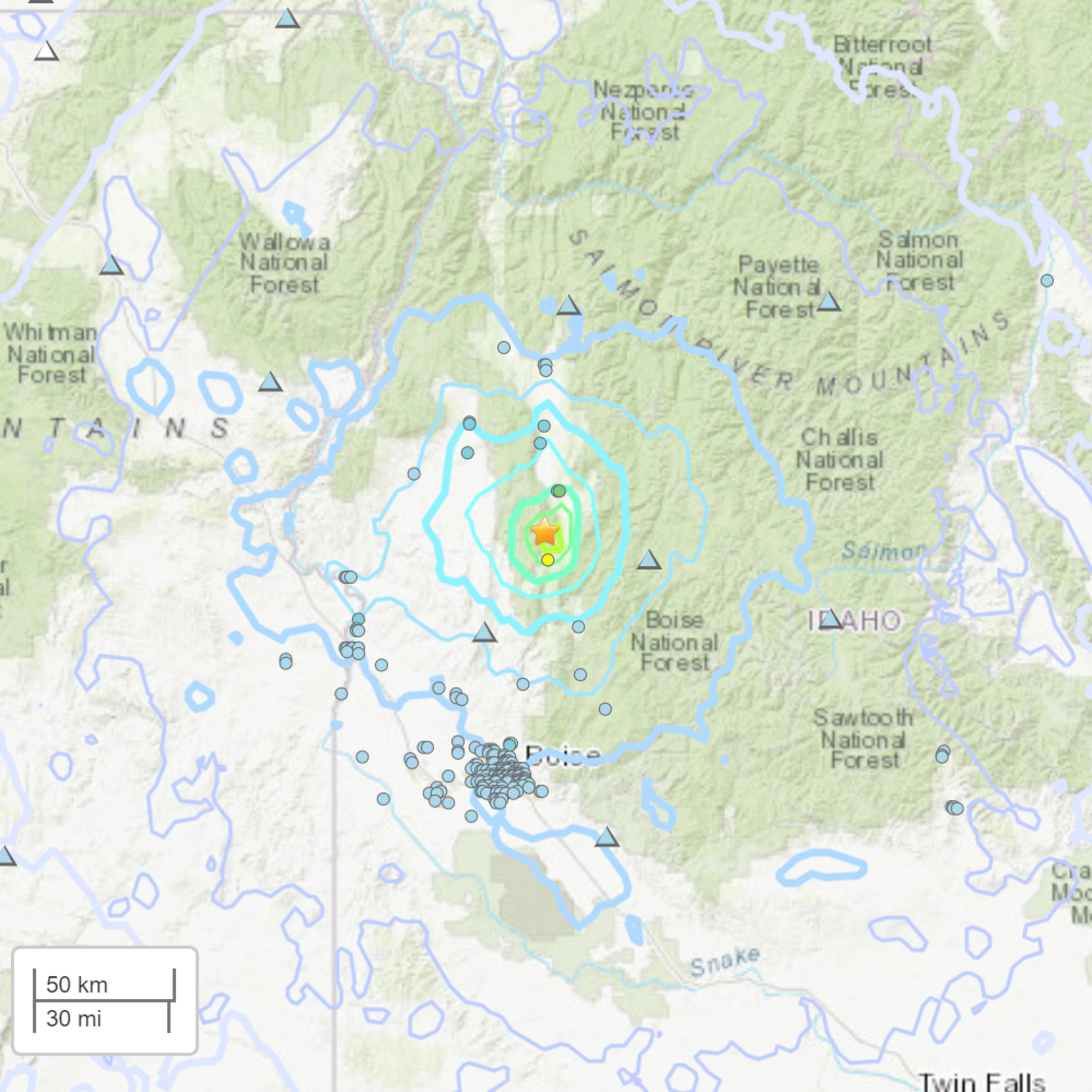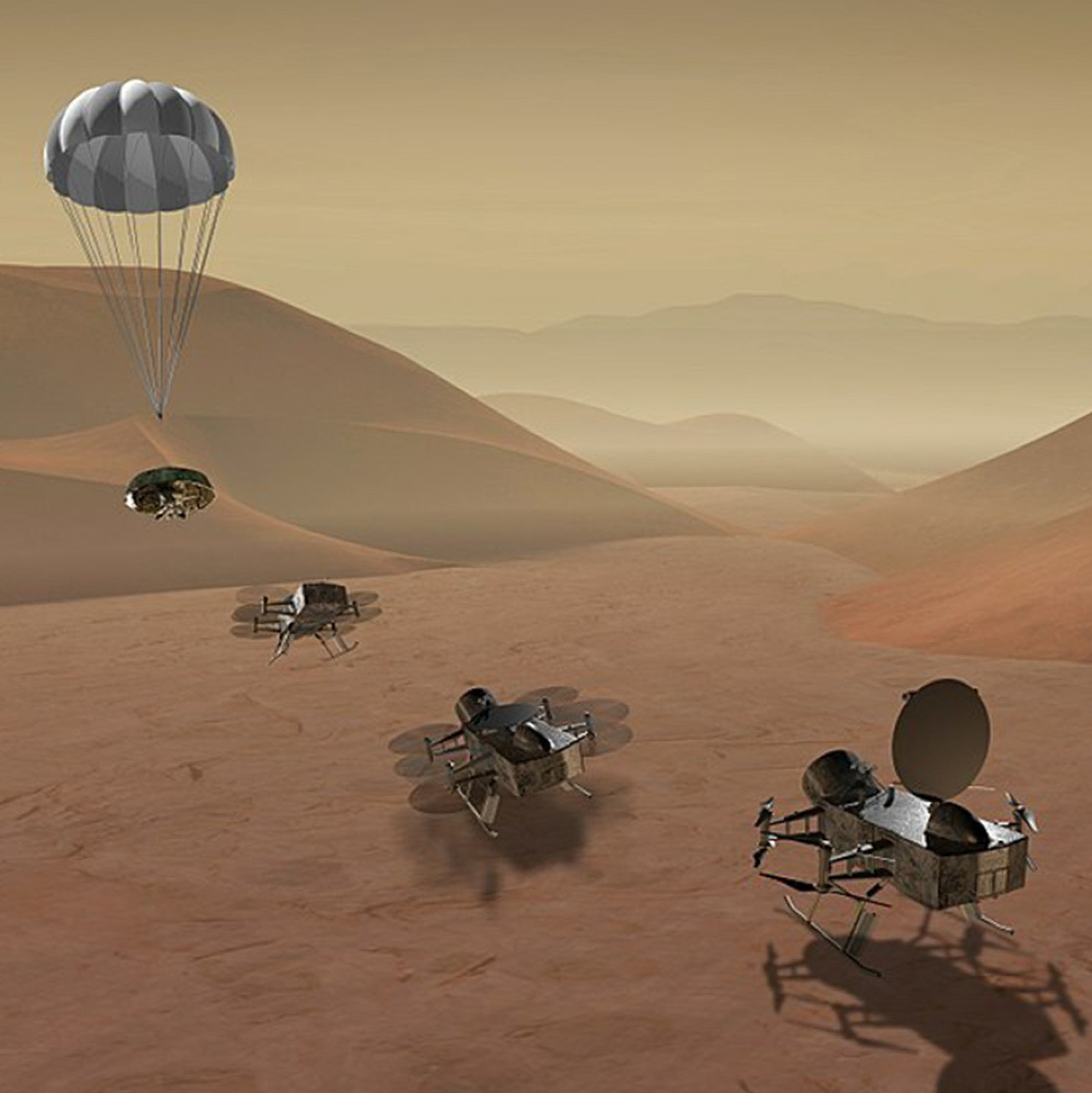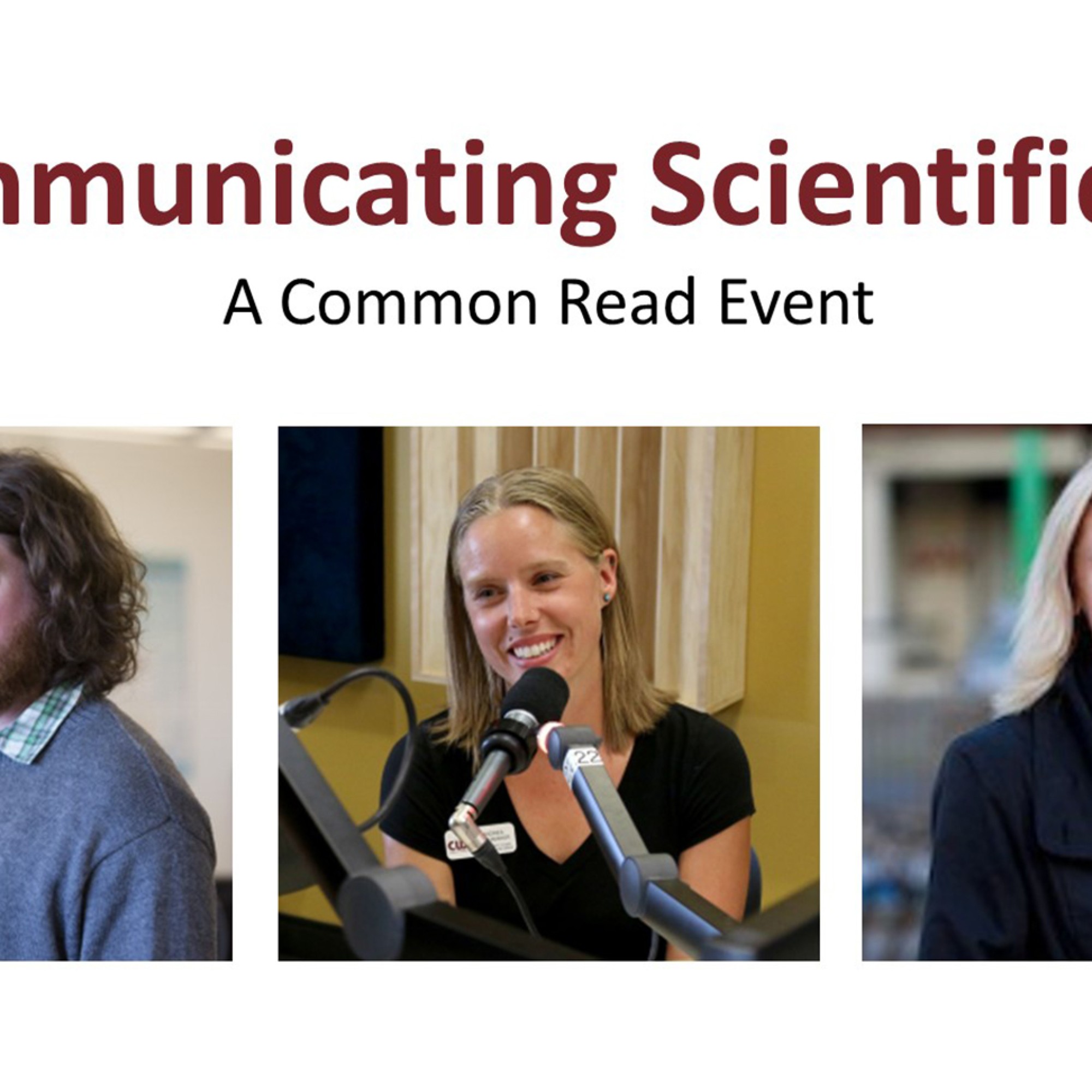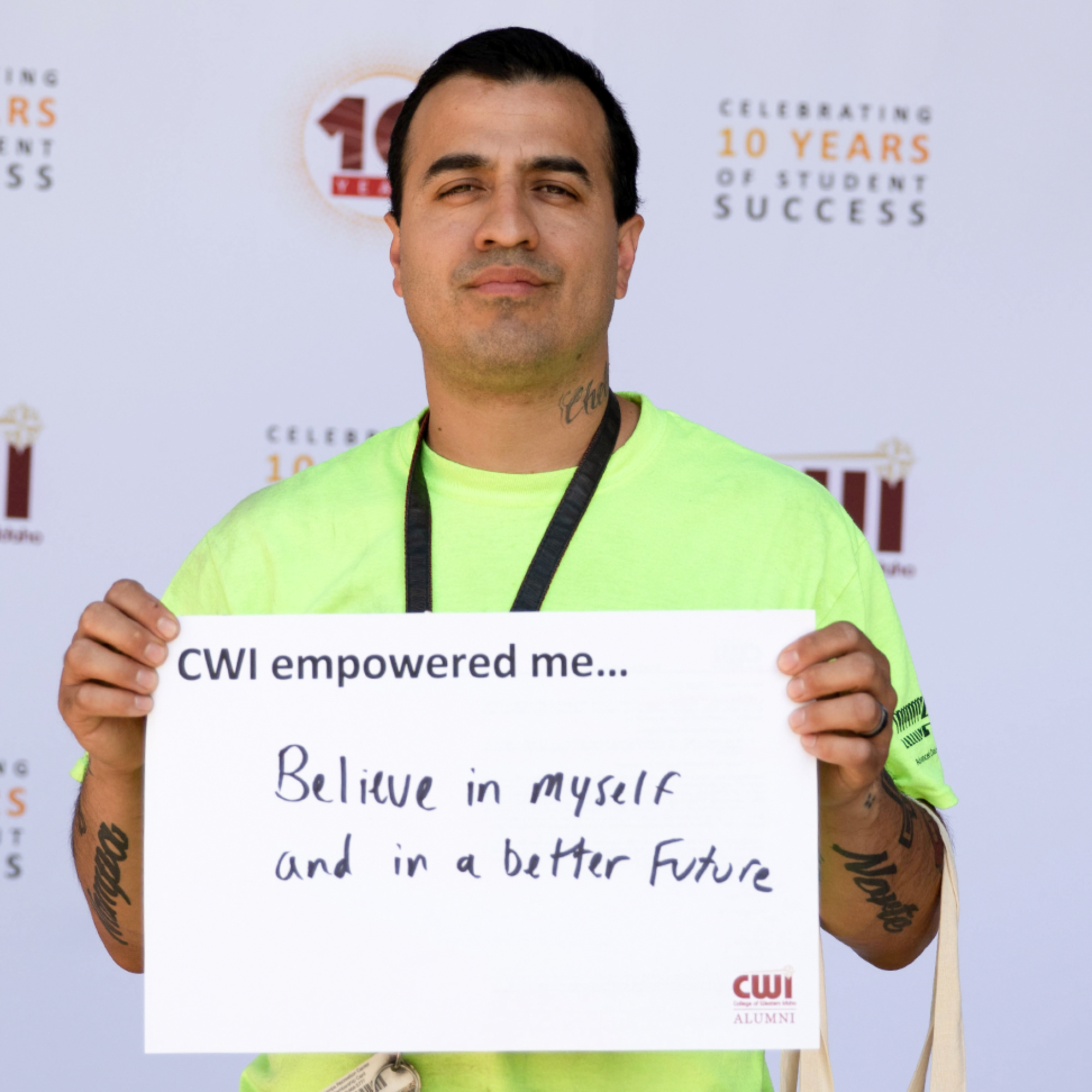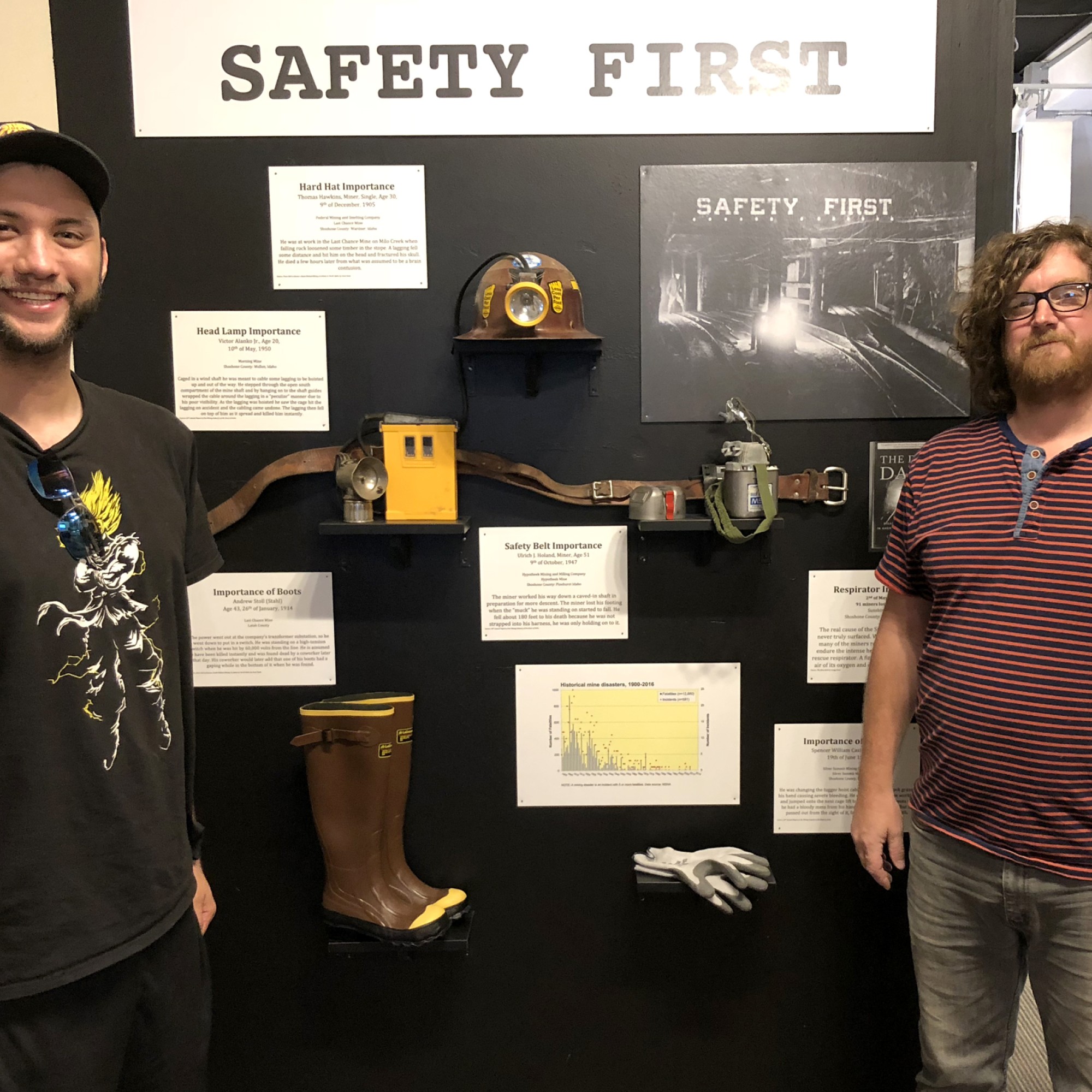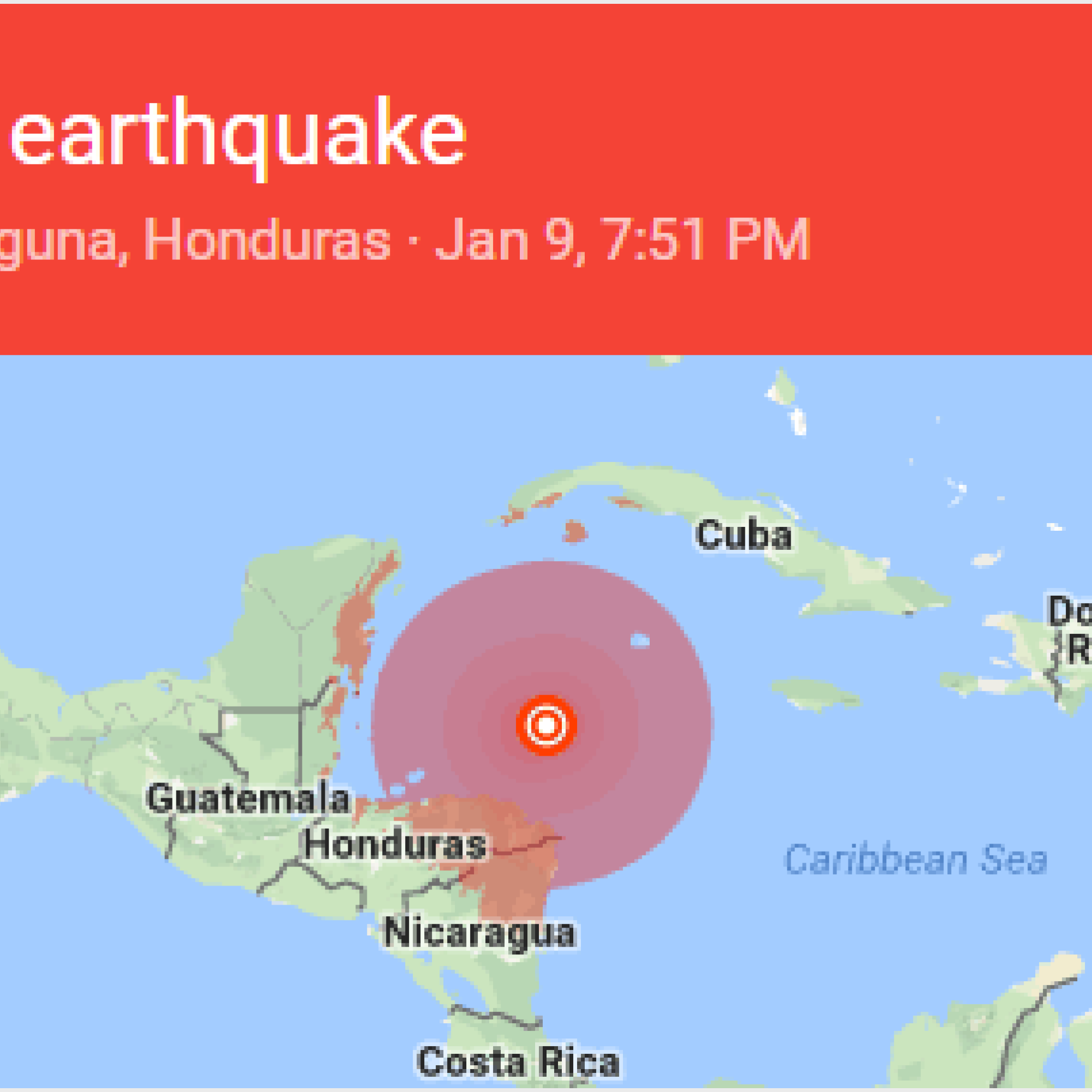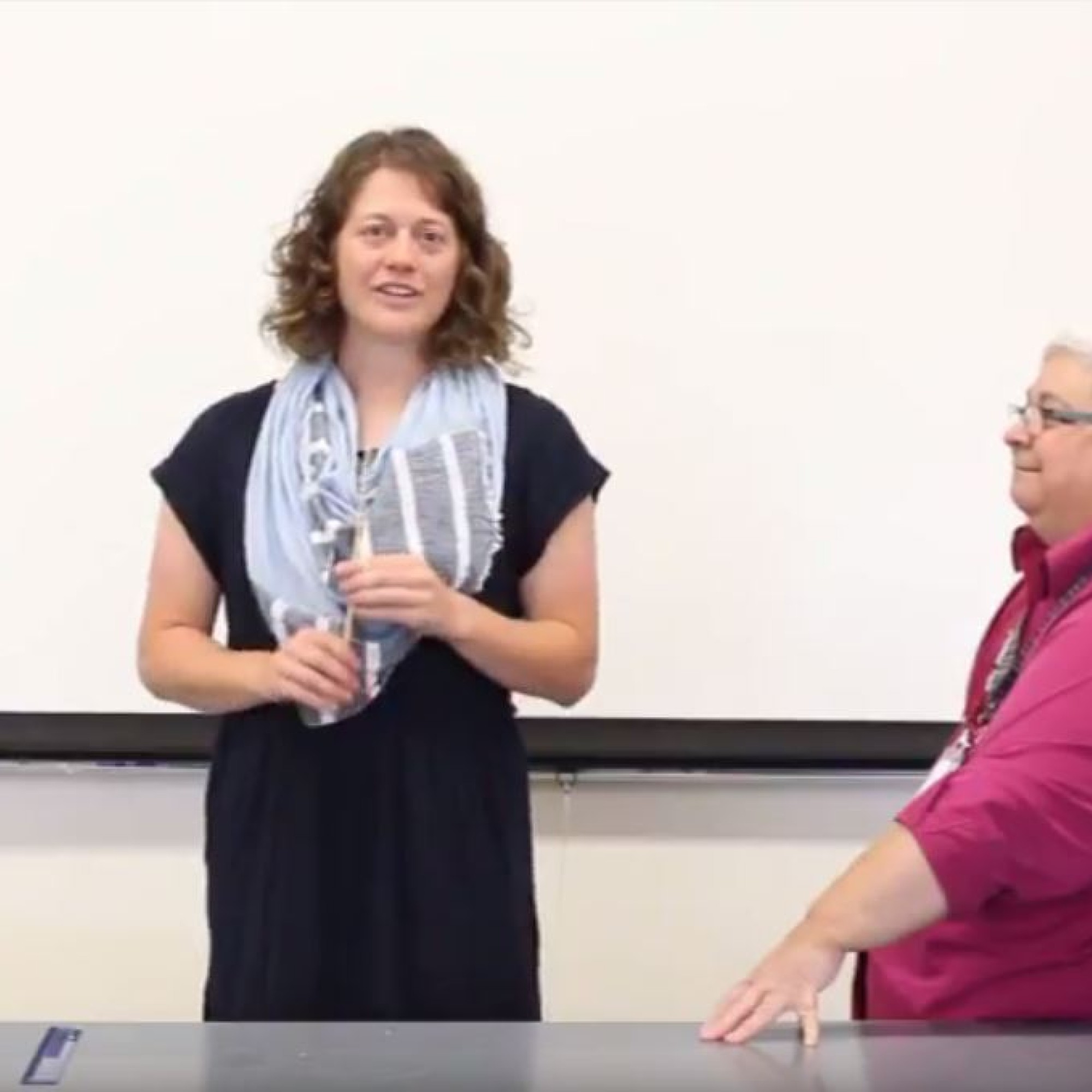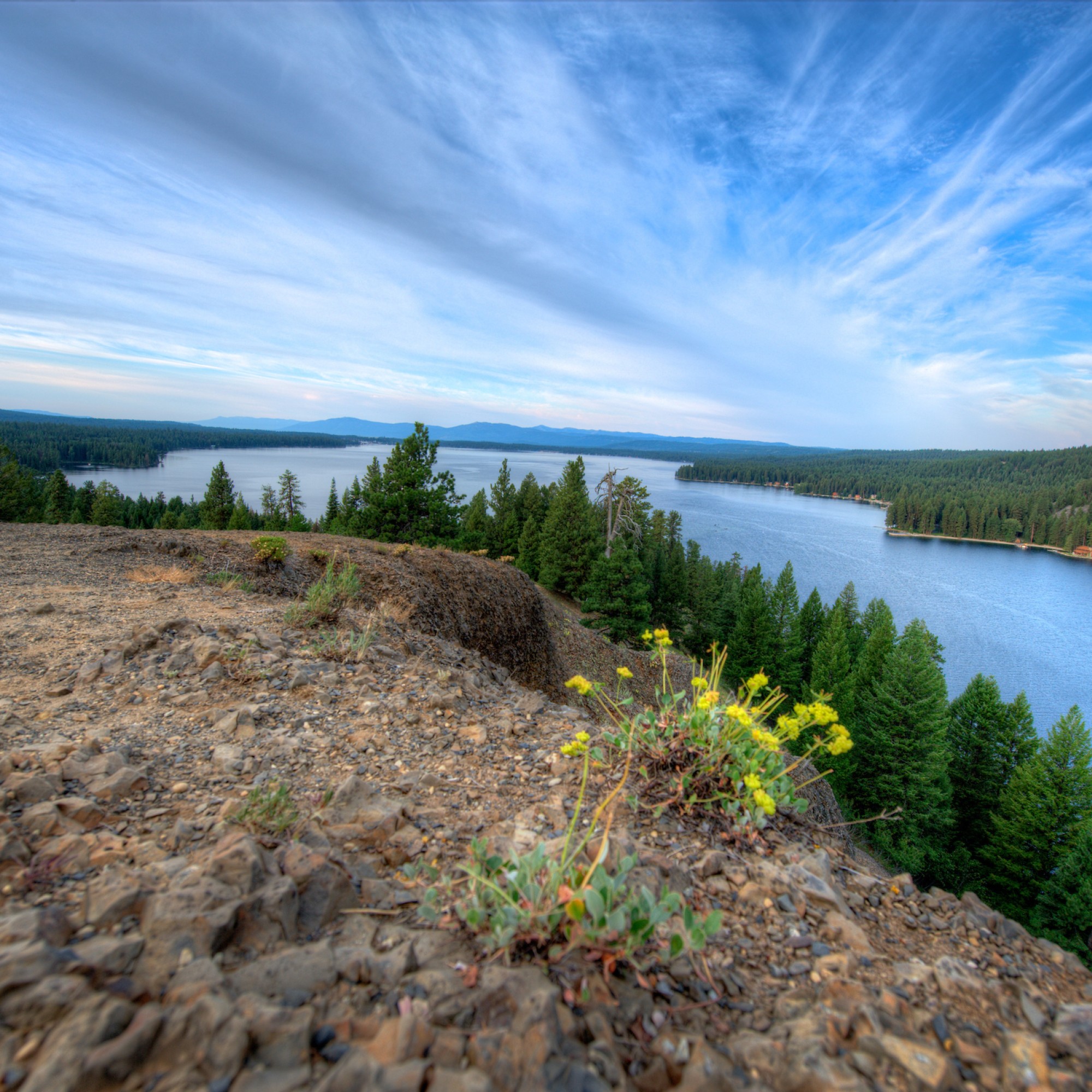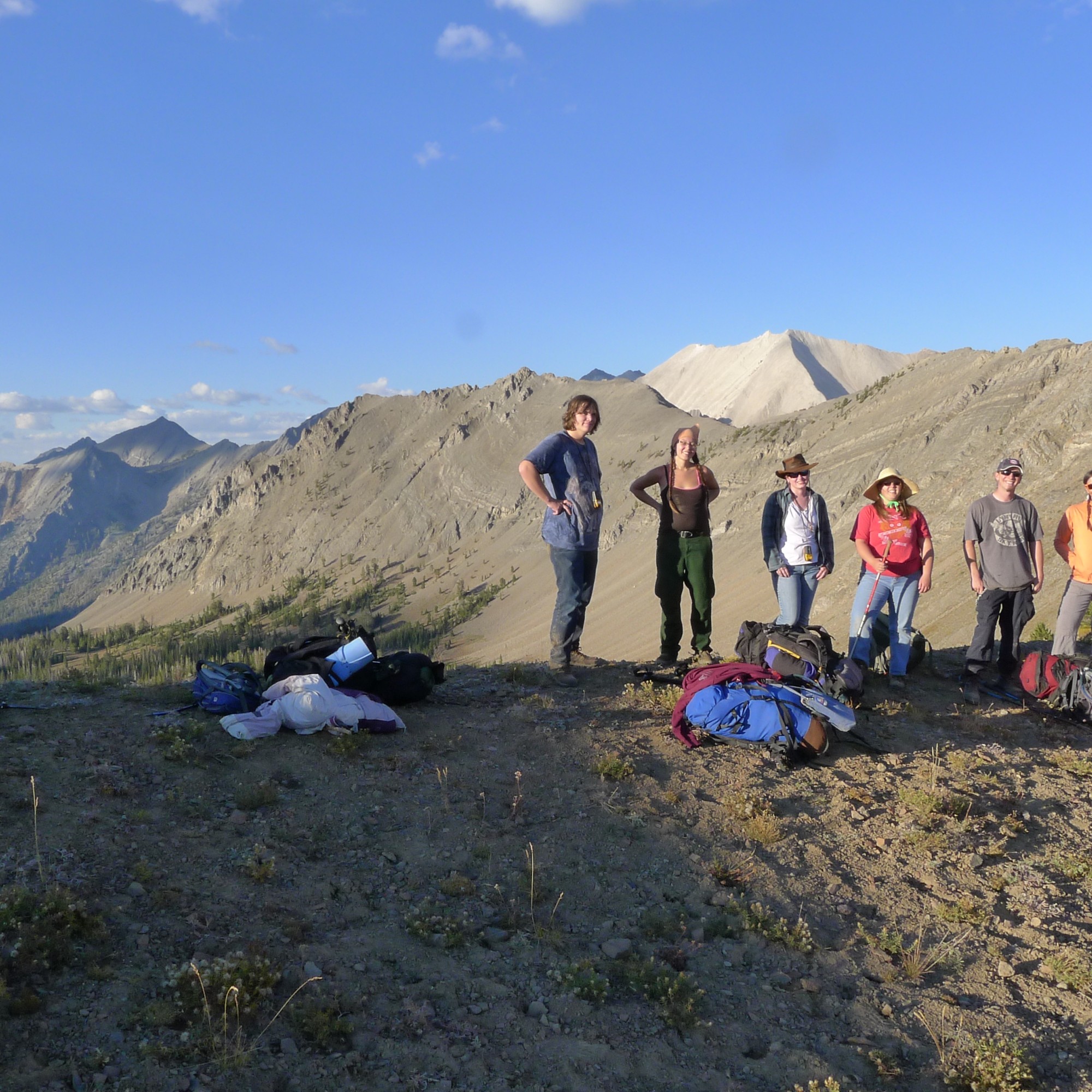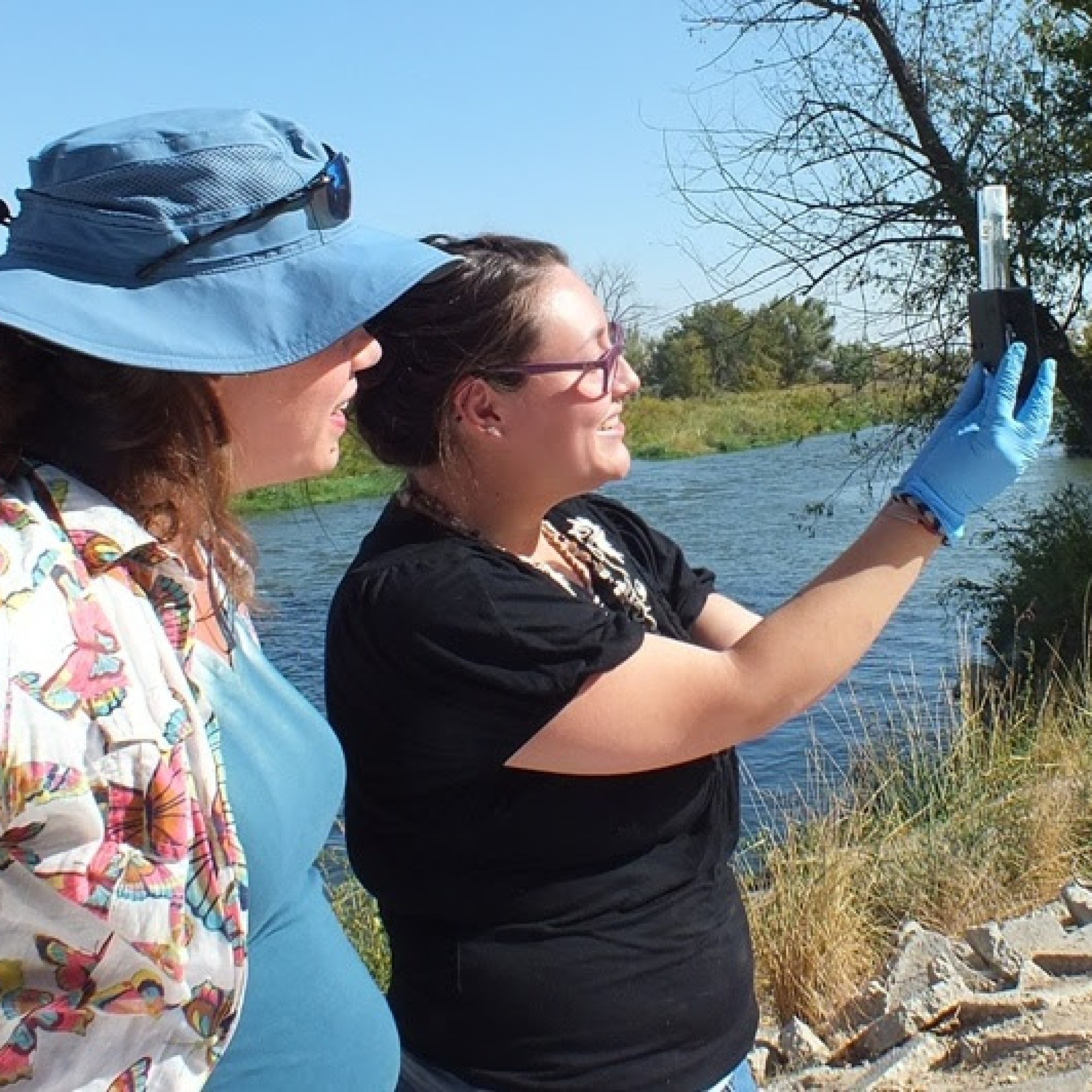At the Idaho Mining Conference, CWI highlighted student experiences, partnerships, and workforce-ready skills shaping the future of mining and geoscience in Idaho.
Read more about CWI Helping Shape the Next Generation of Mining ProfessionalsGeosciences
Integrated, Hands-On Studies Preparing You for a Career or to Transfer On

Program Overview
Interested in the study of Earth and its complex systems? College of Western Idaho’s (CWI) Geosciences program, incorporating essential aspects of geology, offers a comprehensive exploration of Earth’s processes, materials, and history. This Associate of Science degree lays a strong foundation in geology and other scientific disciplines like mathematics, chemistry, physics, and biology, essential for understanding the dynamic interactions within Earth's systems. Perfect for those drawn to earth science, the program leads you through various aspects of geology, environmental science, and natural resource management, preparing you for advanced studies at a four-year university.
Your journey will include studying rock formations, geological structures, and mineral resources, alongside key environmental and sustainability issues. Through engaging coursework and practical fieldwork, you will develop a deeper understanding of geologic processes, from plate tectonics to erosion, and how they shape our world. Graduates find opportunities in diverse fields, including the oil and gas industry, mining, environmental consulting, and government sectors.
Degree or Certificate Type
Associate of Science
Cost
Additional cost may apply.
Time to Complete
2 years
Primary Locations

New Scholarships
Dig into your future with the new Stibnite Launch Scholarship — covering nearly all tuition costs for eligible students in CWI’s Geosciences and Mining Technician programs! In partnership with Perpetua Resources we are educating skilled technicians for the modern mining industry.

Learning Opportunities
- Integrated Study of Geology and GIS: Gain valuable geology insights while learning Geographic Information Systems (GIS), a critical tool in modern geoscience.
- Hands-On Geological Fieldwork: Participate in field trips and labs for practical experience in geological mapping, rock and mineral identification, and data analysis.
- Environmental and Geologic Processes: Understand key environmental challenges and the geological processes that impact our planet.
- Diverse Geoscience Careers: Explore career paths in geology, environmental science, natural resource management, and beyond.
- Preparation for Advanced Geological Studies: Equip yourself for seamless transfer to pursue a bachelor's degree in geology or related fields.
Areas of Study
Degrees & Certificates
Geosciences – Associate of Science Degree
Cost: $9,705

Career Opportunities
Postsecondary Teachers
1063
Annual Openings*
$35.10
Hourly Median Wage*
$73,008
Annual Median Salary
18.28%
Growth (2025 – 2035)*
Natural Sciences Managers
Plan, direct, or coordinate activities in such fields as life sciences, physical sciences, mathematics, statistics, and research and development in these fields.
44
Annual Openings*
$48.93
Hourly Median Wage*
$101,774
Annual Median Salary
14.86%
Growth (2025 – 2035)*
Geoscientists, Except Hydrologists and Geographers
Study the composition, structure, and other physical aspects of the Earth. May use geological, physics, and mathematics knowledge in exploration for oil, gas, minerals, or underground water; or in waste disposal, land reclamation, or other environmental problems. May study the Earth’s internal composition, atmospheres, and oceans, and its magnetic, electrical, and gravitational forces. Includes mineralogists, paleontologists, stratigraphers, geodesists, and seismologists.
16
Annual Openings*
$38.86
Hourly Median Wage*
$80,829
Annual Median Salary
11.39%
Growth (2025 – 2035)*
Hydrologists
Research the distribution, circulation, and physical properties of underground and surface waters; and study the form and intensity of precipitation and its rate of infiltration into the soil, movement through the earth, and return to the ocean and atmosphere.
14
Annual Openings*
$36.70
Hourly Median Wage*
$76,336
Annual Median Salary
6.68%
Growth (2025 – 2035)*
Geological Technicians, Except Hydrologic Technicians
Assist scientists or engineers in the use of electronic, sonic, or nuclear measuring instruments in laboratory, exploration, and production activities to obtain data indicating resources such as metallic ore, minerals, gas, coal, or petroleum. Analyze mud and drill cuttings. Chart pressure, temperature, and other characteristics of wells or bore holes.
3
Annual Openings*
$22.12
Hourly Median Wage*
$46,010
Annual Median Salary
14.38%
Growth (2025 – 2035)*
*Data sourced from Lightcast™, a labor market analytics tool, and limited to the state of Idaho. Contact CWI Institutional Research for questions regarding this data. Career pathways may require further education beyond CWI.
Admissions
Step 1
- Apply to CWI.
- Choose Geosciences as your major.
Step 2
- Complete the Free Application for Federal Student Aid (FAFSA).

Cost & Aid
As a student in this program, you may be eligible for financial aid and scholarships.
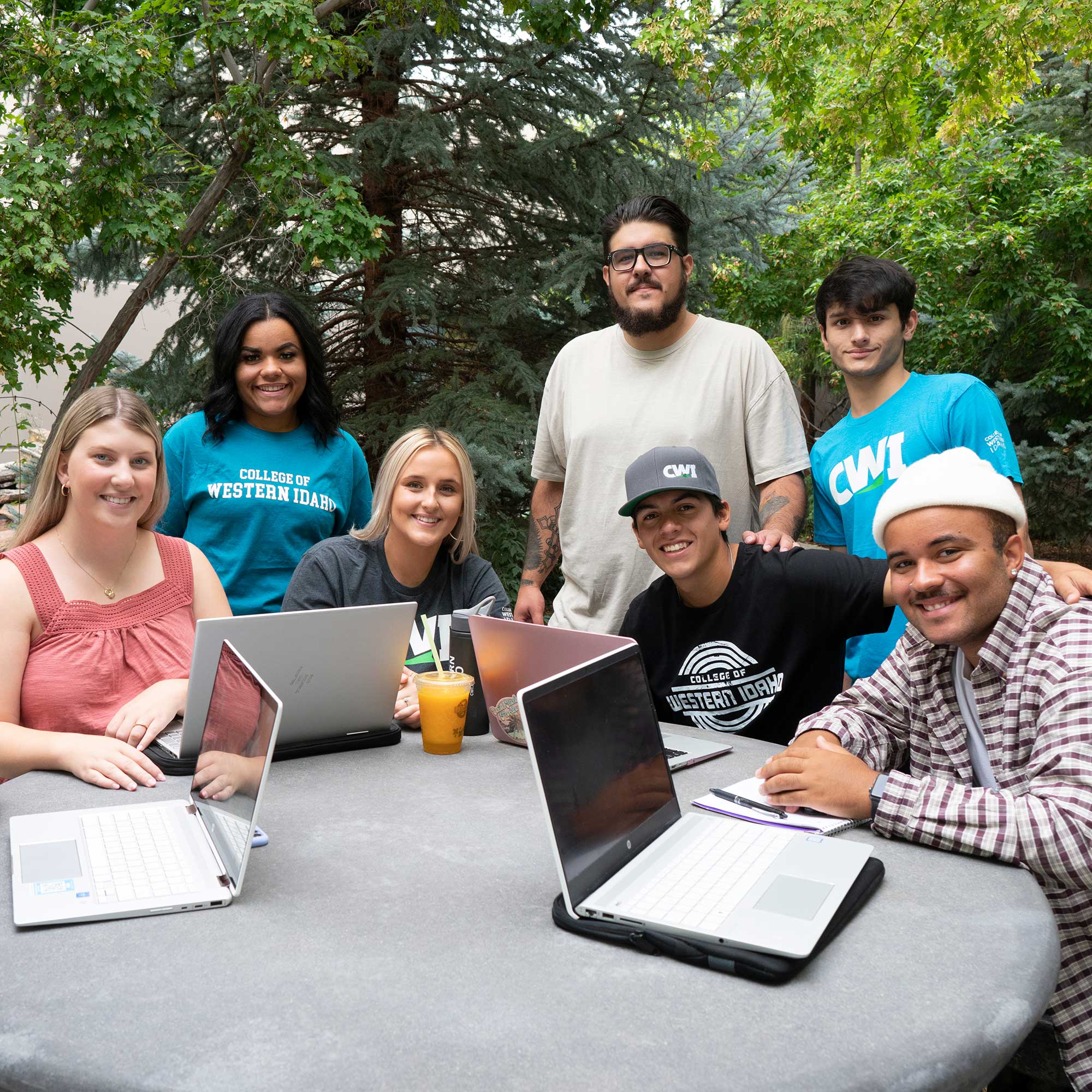
Enrichment Opportunities
Enhance your academic experience, expand your knowledge, reach your goals, and celebrate your achievements.

Advising
Already a student? We are here to help you navigate your educational journey, connect you to academic and support resources, and achieve your academic or career goals.

Transfer Information
Plan ahead for a smooth transition to a four-year college or university.
News
U.S. Secretary of Labor Lori Chavez-DeRemer and Governor Brad Little joined Perpetua Resources and College of Western Idaho (CWI) during a visit to the Stibnite Gold Project on August 6, announcing a...
Read more about Labor Secretary Chavez-DeRemer and Governor Little Highlight Mining Education in Idaho VisitWhat should you do when an earthquake hits? Here are some simple safety steps to follow when the next tremor rolls in.
Read more about Stay Safe During an EarthquakeJoin University of Idaho professor, Jason Barnes, April 13 to learn more about the Dragonfly space mission, a project to explore Titan, Saturn’s largest moon.
Read more about Visiting Scientist Series Welcomes Jason BarnesCWI's Common Read Series invites you to join them for an informative panel discussion all about science featuring CWI faculty.
Read more about Common Read Series: Communicating Scientifically“CWI empowered me to believe in myself and in a better future.”
Read more about Leading by ExampleCWI student, Westin Juarez, teams up with CWI professor, Ander Sundell, and the Idaho Museum of Mining and Geology to design a new exhibit.
Read more about Geology Student Designs Museum ExhibitSeismic waves from an earthquake in Honduras on Jan. 9 were detected at College of Western Idaho, 2,500 miles away!
Read more about Seismic Waves Travel to NampaCollege of Western Idaho’s (CWI) Science, Technology, Engineering, and Mathematics programs are excited to share new episodes of the video blog series, Science is a Verb. CWI faculty share some...
Read more about Science is a Verb: Detecting TouchCollege of Western Idaho’s (CWI) Biology 2 (Biodiversity & Evolution) class is going native! Join other adventurous students for a three week immersion experience studying the biodiversity and...
Read more about CWI Biology is Takin’ It Outside!A group of CWI students had the chance to engage with Idaho State University graduate students on a field trip to investigate and map rocks.
Read more about Geology Trip Provides Connections for CWI StudentsOn Oct. 1, CWI students and faculty joined a group of citizen scientists gathered at the confluence of the Snake and Boise Rivers to monitor water quality.
Read more about CWI Faculty and Students Join Watershed WatchRequest More Information
Interested in learning more about this program or getting started? Fill out the information below to be contacted by a member of our team.
Connect With Us
Ready to get started? Our team looks forward to assisting you!






